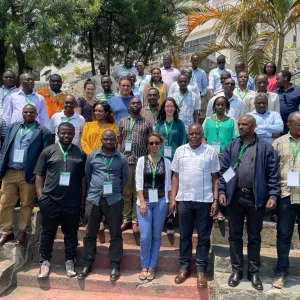Clim-ARM: Integrating weather and climate analytics into agricultural risk management in Ethiopia
Natural resource management and climate change impact are of high priority in agricultural development. Agriculture is Ethiopia’s most significant component of its economy. It employs most of the population, mainly in subsistence and rain-fed farming and livestock production, thus accounting for more than half of the country’s GDP. Of the population employed by agriculture, a large majority are smallholder farmers

Clim-ARM: Integrating weather and climate analytics into agricultural risk management in Ethiopia
Natural resource management and climate change impact are of high priority in agricultural development.
Agriculture is Ethiopia’s most significant component of its economy. It employs most of the population, mainly in subsistence and rain-fed farming and livestock production, thus accounting for more than half of the country’s GDP. Of the population employed by agriculture, a large majority are smallholder farmers practicing subsistence farming on less than one hectare of land. In recent years, the increasing frequency of adverse climate change and change in weather patterns has negatively affected agricultural production, food security, and rural livelihoods.
Providing Weather and Climate Services (WCS) for agriculture is key to anticipating and preparing farmers most susceptible to climate risks.
Climate insurance, private sector development, and natural resource management are included in Ethiopia’s agricultural policy and are expected to integrate weather and climate services for the development of the agricultural sector. Furthermore, to support the agricultural endeavors in the country, it is essential to map and integrate the WCS into agricultural risk management (ARM).
The Integrating Weather and Climate analytics into Agricultural Risk Management (Clim-ARM) project is funded by the Bill and Melinda Gates Foundation (BMGF), and is also being implemented in Ethiopia, led by the Alliance of Bioversity International and CIAT. The implementation is timely as it aligns with the country’s agricultural strategy. The implementing partners include the Agricultural Transformation Institute (ATI), a Ministry of Agriculture affiliated institution, which plays a vital role in every position, from policy influence to implementation and CATIE.

